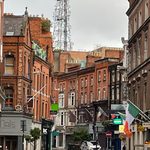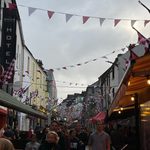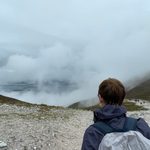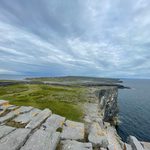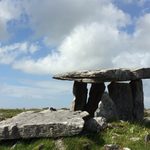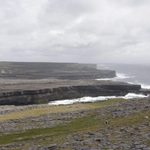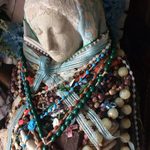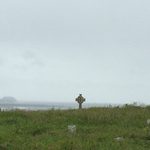A Discussion with Faculty Directors Michael McNally and Arnab Chakladar
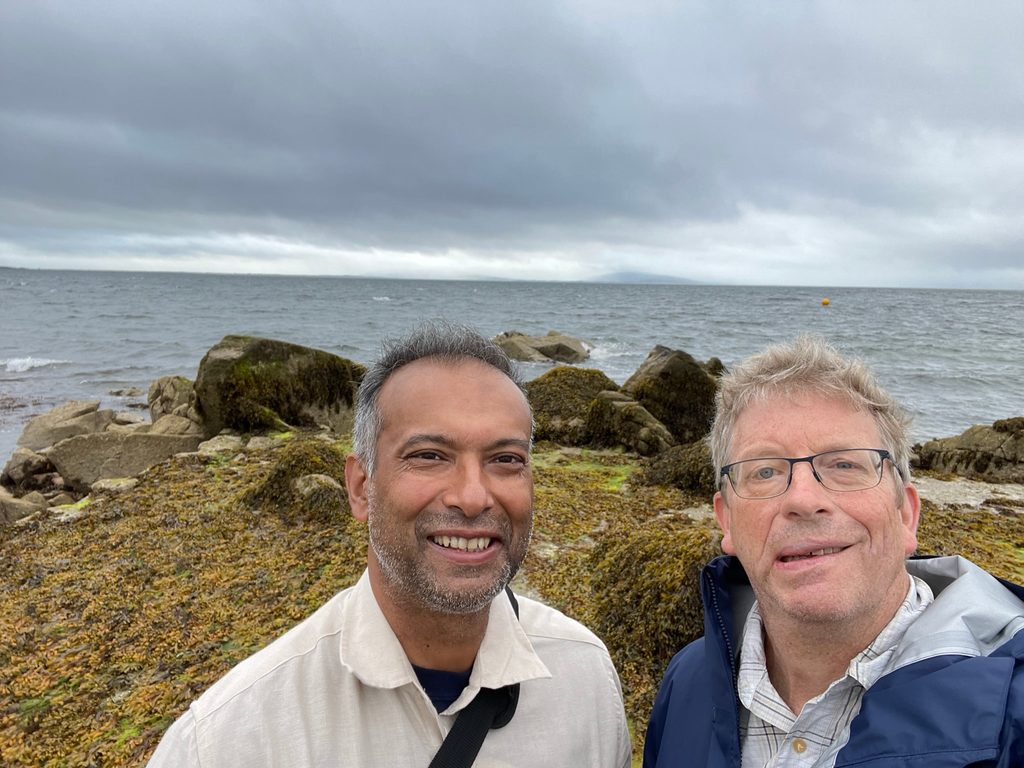
What inspired you to plan Irish Studies in Ireland? What did you hope to accomplish?
Michael: The through line of Irish religion: ancient/preChristian, Christian, and postChristian is sacred place. Ireland has been a place of preChristian and Christian pilgrimages, and is even a place today where many post-Christian or post-religious moderns go to connect with the earth based religiosity of Celtic Spirituality. Pilgrimage is also a theme given to an OCS program. The anthropologist Victor Turner said every pilgrim is half a tourist and every tourist half a pilgrim, and I think the notion of an intentional educational journey to Ireland in particular puts in good company with pilgrims of all sorts.
Arnab: The English department has, of course, been taking students to Ireland every other summer since 1989. In some ways my half of Michael and my program is a continuation of that. However, as Michael and I confirmed when we visited Ireland together in July, the cultural, political and historical currents that flow into and from the questions of place and pilgrimage that Michael will be exploring are also fundamental to the literary texts I will be reading with the students. In that sense, this is a truly novel program–something that has never been done before at Carleton.
What makes this program different from other study abroad programs?
Arnab and Michael have combined forces to create a rich multidisciplinary engagement with Ireland. There’s enough literature for those who crave to read Irish literature in Ireland; there’s also enough time for those who love to ramble on compelling landscapes. We have done a lot of work to envision a coherent program with enough connective tissue to make sense, but enough play in the system to equip students to personalize their learning in the program. The program will have the benefit of both our approaches, our teaching styles, and engaging the amazing history and culture of Ireland through this unique program design.
What does a typical day look like on your program?
It depends; the first half of the program will be centered in Ireland’s West, in Galway, and we’ll have many outings to sacred islands, mountains, springs, and we’ll even walk some pilgrimage trails. We’ll also engage archaeological sites, and explore how places condense memory for Irish people. The second half of the program will be less about land and landscape and more about literature and the arts, centered in Dublin, once the British Empire’s sophisticated second city, with an extended stay in Belfast and excursions in and around the city. This part of the program will be urban and alive with Dublin’s wonderful arts and literature scene.
What does the housing situation look like, and what are the benefits of this living arrangement to students?
Students will stay in campus housing at National University Galway for the initial half, and at the storied Trinity University in Dublin. Galway and Dublin are manageable cities (Galway is both medieval and modern and walkable and close to the compelling seascapes and landscapes that so inspired Irish religion and literature; Dublin is historic but cosmopolitan, sophisticated in poetry, music, literature, and the arts)
What are you most looking forward to?
Michael: I’m looking forward to finding out what all the students see, and see differently, in the places I find so engaging, and learning with them. What will it feel like to them to ascend Croagh Patrick, Ireland’s Holy Mountain and associated with Lugh, the Celtic God of the Sun to be passed by pilgrims ascending in bare feet, to see the low clouds break into stunning views of Clew Bay.
Arnab: I am looking forward to exploring Dublin and Belfast with students with both a geographical and literary map in view. The city of Dublin will be as much of a text for us as the stories, poems and novels we will read and I can’t wait to “read” it with a cohort of sharp Carleton students.
What advice would you give to students to encourage them to study abroad during their Carleton career? What benefits do you see to the experience in general?
Michael graduated from Carleton and his most important memories of the Carleton experience were on an OCS program in Germany in 1983, especially the two weeks spent on the other side of the Berlin Wall (which would remain for another four years), meeting with East Germans and Russian tourists on the other side of the Cold War divide.
Arnab has previously led an OCS program to London and can speak directly to the transformative nature of the experience both for his students on that program and for him and his family (who accompanied him to London and will be accompanying him to Dublin). There is no substitute for the dense lived experience and the cultural enrichment that Carleton’s 10-week programs abroad offer and students would be rash to not take advantage of them.
Michael McNally is a John M. and Elizabeth W. Musser Professor of Religious Studies. He has been at Carleton since 2001.
Arnab Chakladar is an Associate Professor of English. He has been at Carleton since 2007.
